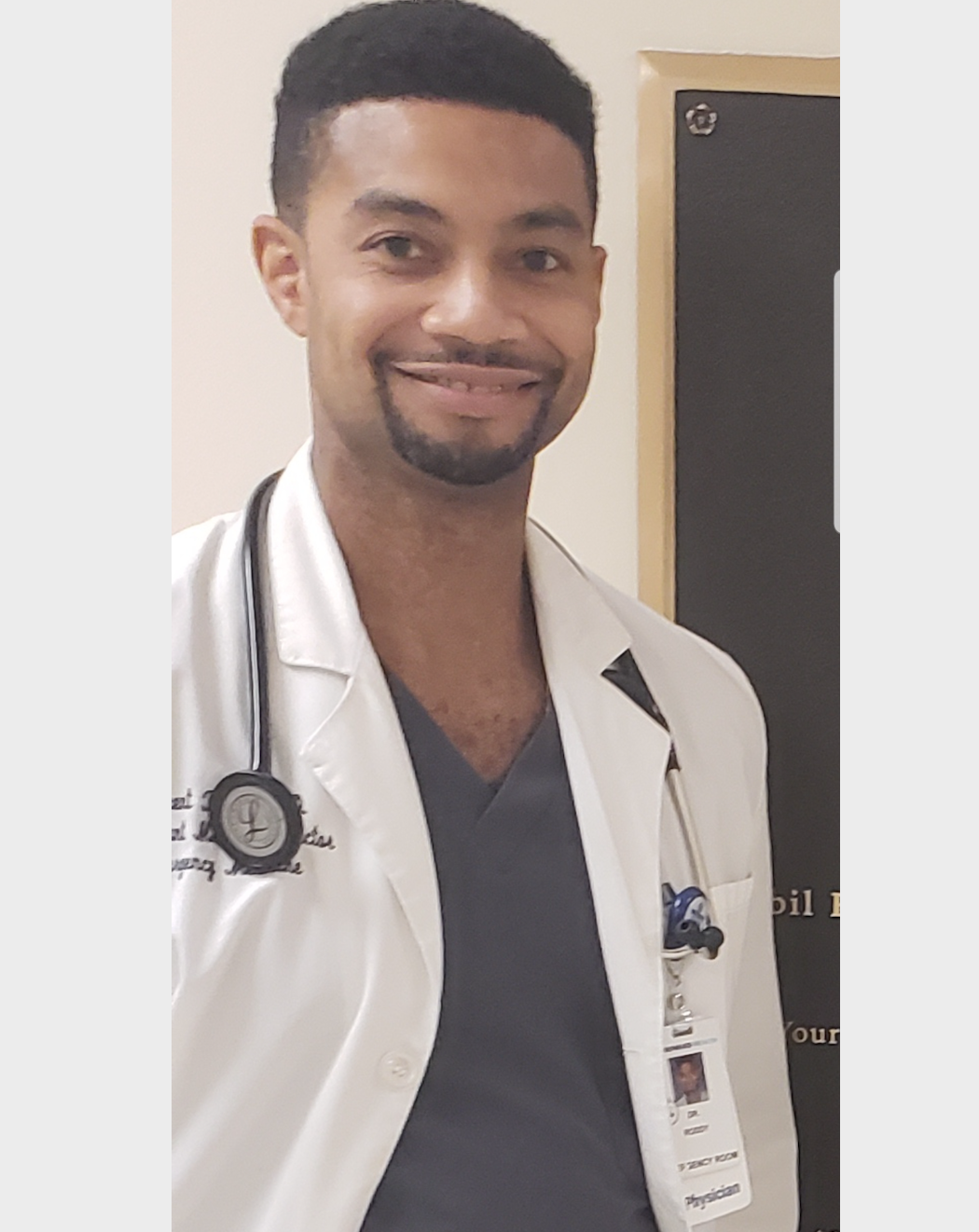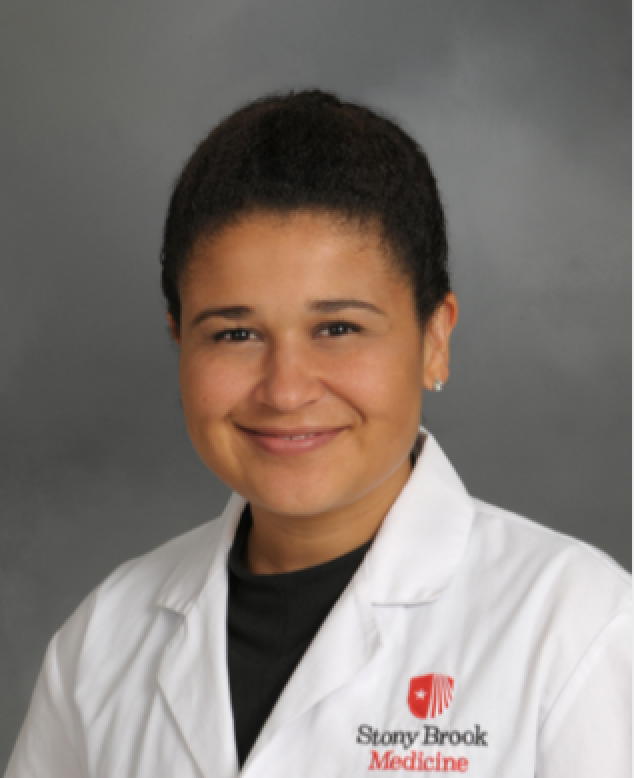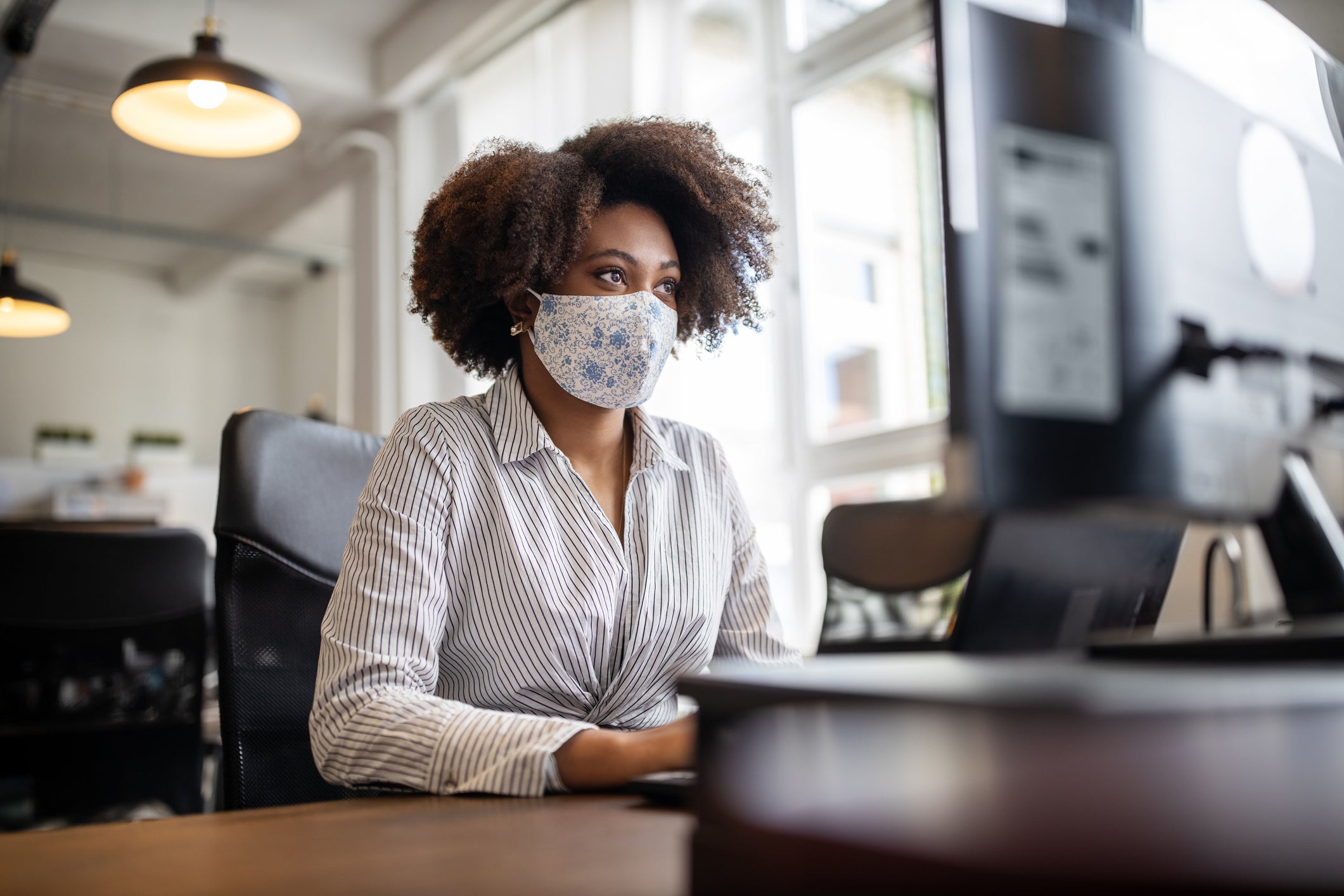As the coronavirus pandemic rages on in the United States, with cases recently topping five million, many people are turning to telehealth—a way to see their doctors virtually without fear of transmitting or risking infection of COVID-19.
Though all states are in some phase of reopening, Dr. Kimberly Noel, who serves as the Telehealth Director of Stony Brook School of Medicine and the institution’s Deputy Chief Medical Information Officer, advocates for this practice—unless the situation is dire. She explains that, “Telehealth has contributed greatly in allowing patients to receive convenient care in their home, helping millions of Americans, especially older adults receive healthcare without unnecessary exposure to the virus.”
Still, access to laptops, smartphones and more can create a digital divide for those needing and wanting telehealth options. According to Pew Research Center for Internet and Technology, of the 98% of Black Americans who own a cell phone of any kind, 17% don’t own a smart phone compared to 14% of whites. The disparities are more stark across class lines. The higher the income and education level, the more likely access becomes. Even when technology is available, some people still aren’t connected to health care professionals they trust.
To that end, as COVID-19 continues to change shape and some politicians prioritize the economy over people’s health, ESSENCE interviewed Dr. Noel and Dr. Vincent Roddy, a Medical Director and Emergency Physician at North Shore Medical Center in Miami, Florida. Both leading experts in their field, Noel and Roddy address some of the concerns that people may have—from symptoms to look for in children to if it’s safe to fly, and more.
—
ESSENCE: Is COVID-19 a vascular disease?
Dr. Vincent Roddy: Regarding COVID-19 being a vascular disease, this is new information that has been presented over the last couple of months. Essentially what new research suggests is that COVID-19 attacks the lining of vascular cells, leading to an inflammatory reaction in the lungs that can lessen gas exchange, and lead to hypoxia (lowered oxygen levels in the blood). This inflammatory reaction can also affect blood supply to the kidneys, brain, other vital organs, and predispose patients to developing blood clots. These blood clots can cause strokes, heart attacks, damage to vital organs, and decreased blood supply to limbs. These complications are seen more so in patients with preexisting conditions.
ESSENCE: What are some of the pre-existing medical conditions within the Black community that make some of us more susceptible to contracting COVID-19?
Dr. Roddy: Black Americans and those of African descent worldwide are not more susceptible to contracting COVID-19; unfortunately, though, due to the existence of pre-existing conditions, Black people are at higher risk of experiencing complications and COVID related deaths. Pre-existing cardiovascular disease has been the risk factor linked to the highest fatality rate. Diabetes, high blood pressure, pre-existing lung disease, and cancer are all shown to increase mortality as well.
ESSENCE: Church is important to me. Is it safe to go back?
Dr. Roddy: As reported in Politico and The New York Times, we are seeing resurgence in the number of COVID-19 cases reported in states where in-person church services have restarted. Given the risks of attending in-person services, it could be advisable to attend church services online if offered by your congregation. Given the importance of religious guidance to our collective mental health, particularly during times of great stress, I totally understand why people still want to attend in person services. Unfortunately, it may not be safest at this time to do so. If you do choose to attend in-person church service, please wear a mask and follow all appropriate social distancing precautions.
ESSENCE: What are some natural ways I can boost my immune system to help lower my chances of contracting COVID-19?
Dr. Roddy: At this time there are no proven therapies that can boost your immune system against COVID and there is no definitive cure for COVID-19 infections. Therapies that exist currently are mostly supportive, supporting your body through the infection, and helping you towards recovery. Given that the key to overcoming a COVID infection is having a high immune system reserve at baseline, people must use this time to do all they can to increase their baseline health. Exercise to improve your lung and cardiovascular function. Eat a healthy diet. Lose weight if you are obese as obesity is linked to the very risk factors that can increase mortality in COVID infections (heart disease, hypertension, diabetes).

Lastly, if you smoke or do drugs, please stop immediately. The COVID pandemic is requiring all of us to live our healthiest lives at this very moment. In case you become infected, you will need that strength and immune function to overcome the infection.
ESSENCE: What are some questions I should be sure to ask my doctor during a telehealth appointment if I believe I’ve contracted COVID-19?
Dr. Kimberly Noel: The only way to definitively know that you have COVID-19 is to get a test, however in some instances testing is not needed. If you suspect you have COVID-19, make sure that you isolate yourself from others until you speak to your provider and ask about testing for the virus.
If you have any other medical conditions, you should ask about any special considerations of suspected COVID-19 due to your existing diagnoses. Although most cases of COVID-19 may resolve on their own, with proper rest, hydration and self-care in isolation, it is good to be prepared if you become more ill. Ask your clinician about policies or procedures of where to go if your symptoms worsen. The CDC has links to state and local health department websites.
ESSENCE: Is telehealth as good as seeing a doctor in person?
Dr. Noel: In some circumstances, telehealth can be even better than an in-person visit, however patient experience differs between providers. In order to have the best telehealth experience, make sure you understand which technology will be used. Download any needed apps or log onto the website way before the visit to understand how the experience will be. Be prepared to have any passwords on hand so that you can log on to the technology easily. Identify a customer service support, in case of difficulty before your visit. Make sure to choose a quiet area with good forward-facing lighting illuminating your face so that you can have the best experience.
Additionally, you should definitely take part in any patient experience surveys or let the clinic know about good and bad experiences to provide timely feedback as most programs are adapting quickly to patient needs. Most patients have positive experiences with telehealth. It is worth trying.
ESSENCE: What COVID-19 symptoms should I look for in children?
Dr. Roddy: Per the CDC, the symptoms of COVID are similar in both adults and children. Personally, I have had a few pediatric patients test positive for COVID. The youngest was 5 weeks old who presented with a fever, otherwise a well appearing child.
ESSENCE: How old should my child be in order to use a face mask?
Dr. Roddy: Per CDC recommendations, masks are recommended in all people ages 2 years and older. The mask should cover their mouth and nose and be wore in public places or when around other people. Due the suffocation risk, cloth face coverings should not be used on those 2 years or younger as well as on people that are incapacitated or may have trouble removing the mask if they have breathing difficulties.
ESSENCE: If I have COVID-19, can I still breastfeed my child?
Dr. Roddy: Per CDC recommendations, mothers with COVID-19 can still breastfeed their children, as breast milk is the best source of nutrition for an infant. The mother must take precautions to prevent transmission of COVID to her child. It is recommended she wear a cloth mask while breastfeeding, as well as wash her hands with soap and water before touching the child. She should also wash her hands with soap and water before touching any breast-feeding equipment (bottle, pump, etc). Clean all parts with soap and water after usage.
ESSENCE: What should pregnant people who plan to give birth soon do?
Dr. Roddy: As reported by the CDC, pregnant patients are at increased risk for experiencing complications or worse manifestations from COVID-19. Pregnant women may experience complications leading to pre-term birth of their child. Pregnant women must take all precautions to prevent infection, they must social distance, wear masks, and follow proper hand hygiene recommendations. Additionally, they should not avoid going to prenatal and postpartum appointments before and after delivery. If a patient feels she is experiencing a medical emergency, call 911 and seek medical attention immediately.
ESSENCE: What are some ways I can relieve my stress during this time?
Dr. Roddy: I think the best way to relieve stress during this time is through aerobic exercise. Exercising 45 minutes to 1 hour, 3 to 4 times a week, has clear health benefits and is a natural stress reliever. Supplement the exercise with eating a healthy diet. Stop smoking and lessen your alcohol intake. Make sure you are getting 6 – 8 hours of sleep per night. If you have time off from work, use this free time to focus on your health and any hobbies you may have neglected, and reconnect with friends and loved ones virtually or, if in person, while following all preventative measures to lessen likelihood of COVID transmission. Quarantine is not what anyone asked for, but we must make the best of this situation and stay as positive as we can.
ESSENCE: What are some resources for people struggling with mental health at this time?
Dr. Roddy: The CDC has great resources online that people can find on their website. Discussing concerns with family, close friends, or spiritual advisers can be helpful. It is normal to feel anxiety and uneasy during this time. Acknowledge any negative thoughts or emotions you may be having, do not allow these thoughts to overwhelm you in the moment. Acknowledge them, process the thoughts the best you can, and allow them to pass. Thoughts are not necessarily reality.
ESSENCE: How does the antibody test work?
Dr. Noel: When a person comes into contact with COVID-19, the body responds by creating proteins that can attack the virus (antibodies) in their blood. Tests that test blood look for these antibody proteins, which might show that they either have or had previously been infected. Tests that swab the nose and throat are tests called reverse transcriptase polymerase chain reaction (RT-PCR). These do not test for antibodies, but in fact test for the virus itself.

ESSENCE: If I take an antibody test and it comes back positive, does that mean I’m immune? Can I be around my family and friends?
Dr. Noel: Unfortunately, it is difficult to interpret antibody tests and you should discuss this with your healthcare provider. A positive antibody test should not assume that one is immune. Patients should still practice social distancing, hand hygiene and wear masks in public. There are some studies that suggest that the antibodies are not protective and that means that not only could someone become ill again, but they could also spread the virus. An antibody test might tell you if you had a past infection. An antibody test might not show if you have a current infection because it can take 1–3 weeks after infection for your body to make antibodies.
Discuss your tests with your provider in light of any symptoms to better understand whether it is safe to see friends and family. If you are symptomatic, practice social isolation and do not see friends or family and stay in a different room from household members, avoid contact. Discuss with your doctor when it is safe for you to see friends and family again.
ESSENCE: How accurate is the antibody test?
Dr. Noel: Most studies that have been published are looking at test results in the hospital setting, so little can be known about what the studies mean for the general population outside of hospitals. More research is needed to evaluate the test. A respected global scientific network of independent researchers, Cochrane, recently published a review on June 25, 2020 a review of published research regarding Testing accuracy.
According to this review, antibody tests one week after first symptoms only detected 30% of people who had COVID-19. Accuracy increased in week 2 with 70% detected, and was highest in week 3 (more than 90% detected). Little evidence was available after week 3. Tests gave false positive results in 2% of those without COVID-19. We should look at further reviews to evaluate accuracy of COVID-19 testing.
ESSENCE: If I do get COVID-19, will wearing a mask protect others from getting the virus from me?
Dr. Noel: Yes, the mask protects others. Social distancing is critical.
ESSENCE: As the country begins to re-open, what are some places that I still may want to avoid? Why?
Dr. Noel: It is important that you read carefully what local officials report about the risk of sustained community spread. Re-opening will have to be evaluated on a case-by-case basis. Avoid crowds and maintain good hand hygiene. It is a good idea to have your own hand sanitizer. Maintain distance from others even while outdoors. Make sure that if you cannot social distance and you are wearing a mask, that you wear it properly over your nose and mouth and refrain from touching it with your hands. Encourage others to wear a mask properly, especially in stores and restaurants. Remember, social distancing is not only about getting exposed yourself, as an asymptomatic carrier; you can still expose others to the virus.
ESSENCE: Is it safe to fly?
Dr. Noel: Travel must be evaluated on a case-by-case basis in light of public health announcements. Avoid unnecessary travel to areas with a high number of cases. Be aware of COVID-19 procedures and protocols, which may require testing before and after flights. You may be subject to quarantine upon arrival or return of your destination. Regulations are shifting day by day. Review CDC.gov regarding travel advisories.
ESSENCE: If two people have quarantined, is it safe for us to get together? Do we need to social distance?
Dr. Noel: Those who have been quarantined are still encouraged to socially distance unless instructed otherwise by your local public health department. Outdoor activities are ideal in reducing risk of transmission. This summer, picnics, beach time and other outdoor activities are ideal for social activities. If you are interacting within 6 feet, wear a mask. It is possible to spread the virus even without symptoms.
ESSENCE: Can I hug someone if I’m wearing my mask?
Dr. Noel: Unfortunately, hugging brings people in close contact and could potentially cause transmission of virus. Pretending to hug with “Air Hugs” can be a fun way to show someone you would otherwise love to hug, that you care. Reserve hugs for those in your closest contacts who you have quarantined with and who for sure have not been symptomatic.
—
ESSENCE is committed to bringing our audience the latest facts about COVID-19 (coronavirus). Our content team is closely monitoring the developing details surrounding the virus via official sources and health care experts, including the World Health Organization (WHO), the Centers for Disease Control and Prevention (CDC) and the Occupational Safety and Health Administration (OSHA). Please continue to refresh ESSENCE’s informational hub for updates on COVID-19, as well as for tips on taking care of yourselves, your families and your communities.
